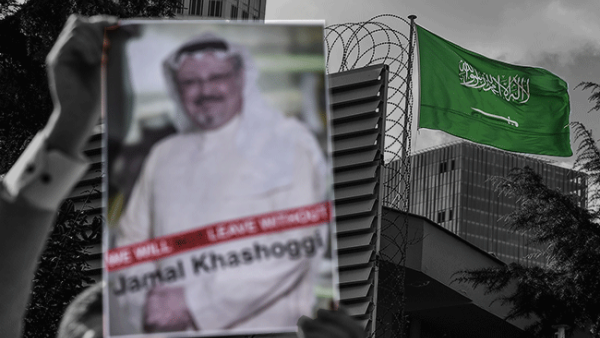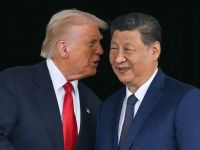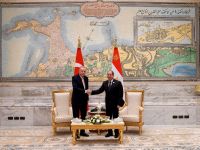Before Christmas and the new year arrives, there is time for reflection. And the first thing that comes to my mind, as a journalist living in Amman, Jordan, was how some other prominent journalists treated Saudi crown prince and de facto ruler Mohammed bin Salman.
While I reported on his war crimes and siege of Yemen that he personally ordered as the minister of defense, I read headlines from David Ignatius of the Washington Post saying “The crown prince of Saudi Arabia is giving his country shock therapy.”
When I was watching bin Salman’s rounding up of powerful dissidents and writing on his brutal means of torturing rivals, I read The New York Times’ Thomas Friedman lavish praise on the mastermind, bin Salman, exclaiming that Saudi’s Spring had arrived, at last. As I saw images of malnourished children with distended stomachs and skin barely covering bones in Yemen, I read The Times complimenting bin Salman’s young swagger as he galavanted through the U.K.
Even more stories faithfully reported bin Salman’s purge to be an ‘anti-corruption investigation,’which mirrored Saudi propaganda without question. Many who just read these stories came away thinking bin Salman was a controversial but promising leader.
Headlines gathered (Rami Khoury/Al Bawaba)
Finally, when I learned of Khashoggi’s disappearance and murder by the hands of the Saudi regime, I watched these same public thinkers, bit-time hitters in the journalism business, disavow their formal golden child of the Middle East.
And I was struck by their hollow calls to protect human rights and free speech at all costs.
Friedman spent considerable time defending his initial praise of bin Salman and the Washington Post editorial board opined that oppression in the Middle East is worse than ever, blaming Trump for emboldening it. Predictably, they disavowed their own previous praise for bin Salman.
A video later re-surfaced of Friedman explaining that he thought bin Salman could be Saudi’s savior, sparing it a fate similar to that of Yemen without acknowledge who ordered Yemen to be destroyed in the first place.
They may say, in defense of their reputations, that bin Salman seemed promising with his modest reforms and plan to attract foreign investors to the country before he began killing his dissidents: he only turned into a tyrant later, after we had registered our admiration for him.
But that’s just laughable.
He ordered the war and siege of Yemen in 2015, and had coerced his way to the role of crown prince before they had even latched onto him with deluded hopes.
He was always this way.
Did these journalists rally around the principles of free speech and speaking truth to power when bin Salman was orchestrating the worst humanitarian catastrophe on Earth? We don’t have to wait for their response, the answer is 'No.' They stood by him until he faced them and his regime killed one of their own.
These journalists are also so influential and powerful, that they actually don’t have to read this or defend their initial positions. This too is a symptom of a broken system of journalism: they can service and bolster oppressive power, without ever being held to account themselves.
As 2018 comes to a close, it has taught me a paramount lesson; speaking truth to power also means holding bad journalism and malpractice to account.
The initial articles on bin Salman reflected Washington Consensus rather than challenging it, and helped solidify bin Salman as a partner to the West. In turn, Washington’s most powerful man, Trump, has defended him vigorously ever since.
Their malpractice had a tangible impact and may have let bin Salman think he could get away with killing another dissident, Khashoggi.
***
The views expressed in this article do not necessarily reflect those of Al Bawaba News.







